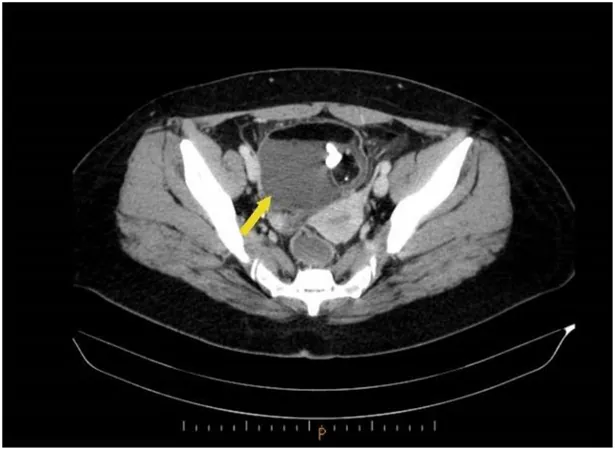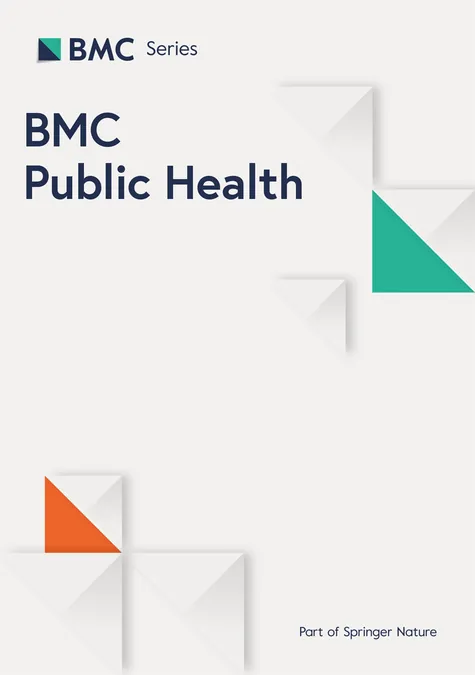
The One-Minute Swallow Test: A Game-Changer in Detecting Deadly Cancers
2025-04-06
Author: Li
In a groundbreaking revelation, scientists have introduced a simple one-minute swallow test that could be pivotal in identifying serious health conditions, including various types of cancer, lung diseases, dementia, and even strokes. This test transcends mere indicators of medication side effects or acid reflux—it's a vital tool for early detection, which can prove crucial for timely medical interventions.
Listening to your body is one of the most intuitive ways to catch potentially fatal diseases at their inception. Among the trending 1-minute tests today is the swallow test, following others like the “clubbing” test for lung cancer and the “grip test” that may hint at your life expectancy. But why is the swallow test making headlines?
According to a recent study published in the journal Dysphagia in 2024, researchers from Israel have emphasized that difficulty swallowing can serve as a red flag for serious underlying conditions. Those who are unable to swallow a specific number of times within 30 seconds might be harboring a severe health concern.
While challenges in swallowing might stem from certain medications or conditions like acid reflux, they can also signal the presence of life-threatening cancers, chronic lung diseases, dementia, or stroke. Early identification through this simple test could ultimately be life-saving.
How to Conduct the One-Minute Swallow Test
This easy evaluation can be done in the comfort of your home and is commonly utilized to diagnose dysphagia, a condition characterized by difficulties in swallowing solids or liquids. Known as the Repetitive Saliva Swallow Test, you should attempt to swallow as many times as you can within 30 seconds, without using food or drink.
The Israeli researchers outlined baseline swallow markers for different age demographics: - Ages 20-39: 8.5 swallows - Ages 40s: 8 swallows - Ages 50s: 7 swallows - Ages 60s: 6.7 swallows - Ages 70s: 6 swallows - Ages 80s+: 4.3 swallows
Failing to meet these benchmarks should prompt a visit to a healthcare professional to explore the potential causes behind your swallowing difficulty. The study revealed that the healthy swallow benchmarks were higher than previously thought, advocating for a more nuanced understanding of swallowing capability, particularly in older populations.
The researchers also noted that changes in throat muscles due to aging affect swallowing patterns and that men generally achieve higher swallow counts than women.
Unraveling the Hidden Causes of Dysphagia
Dysphagia may point to various cancers, particularly those affecting the head, neck, and upper digestive tract, which includes cancers of the esophagus, throat, mouth, larynx, thyroid, and salivary glands, among others. Symptoms can vary widely, including coughing or choking while eating, regurgitating food, or the uncomfortable sensation of food getting stuck in the throat or chest. If you notice signs like a gurgly voice while eating or excessive drooling, it's essential to consult with a medical professional promptly.
Genetic Testing: A Future Ally in Cancer Detection?
In light of this research, it's also worthwhile to consider the role of genetic testing in early cancer detection. As science progresses, advancements in genetic insights could provide personalized prevention strategies.
By taking this simple one-minute swallow test, you are not only empowering yourself but potentially saving your life or the life of someone you care about. Don't delay—listen to your body and be proactive in your health journey.




 Brasil (PT)
Brasil (PT)
 Canada (EN)
Canada (EN)
 Chile (ES)
Chile (ES)
 Česko (CS)
Česko (CS)
 대한민국 (KO)
대한민국 (KO)
 España (ES)
España (ES)
 France (FR)
France (FR)
 Hong Kong (EN)
Hong Kong (EN)
 Italia (IT)
Italia (IT)
 日本 (JA)
日本 (JA)
 Magyarország (HU)
Magyarország (HU)
 Norge (NO)
Norge (NO)
 Polska (PL)
Polska (PL)
 Schweiz (DE)
Schweiz (DE)
 Singapore (EN)
Singapore (EN)
 Sverige (SV)
Sverige (SV)
 Suomi (FI)
Suomi (FI)
 Türkiye (TR)
Türkiye (TR)
 الإمارات العربية المتحدة (AR)
الإمارات العربية المتحدة (AR)